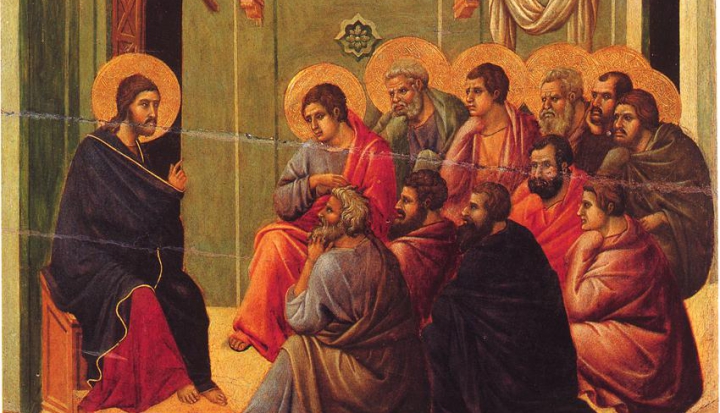St. Paul includes the name Junia, a women’s name, on his list of apostles in Romans 16:7. Does this mean there were women apostles?
The problem is we don’t know who this biblical person is. Not all translators are convinced that she is—rendering her name as Junias, a man. So let’s start with Paul’s list in Romans. Toward the end of his letter, Paul says, “Greet Andronicus and Junia[s], my relatives and my fellow prisoners; they are prominent among the apostles and they were in Christ before me.”
The howls of scholarship commence. Clouds of unknowing swirl around this sentence. In Greek, the second person’s gender is imprecise. How are both persons related to Paul? Did they share a prison with him, or just the reality of jail time? What does Paul mean by apostle? Most fragile among these questions is this: does scripture endow a woman with a title traditionally reserved for a select group of men?
Which translation is primary? The United States bishop-approved translation—New American Bible Revised Edition (NABRE)—uses Junia. Several early manuscripts read Julia, clearly female. Church fathers until the 12th century overwhelmingly preferred the female designation. John Chrysostom wrote, “Oh! How great is the devotion of this woman, that she should be counted worthy of the appellation of the apostle!” Still, 13th-century commentator Aegidius of Rome sided with fourth-century Jerome, positing a male name. Martin Luther later agreed, and by the 20th century most translators had flipped Junia’s gender. It simplified matters to imagine Paul celebrating two of his bros as apostles—a title Paul also claimed.
I’ll spare you the word search. Of 58 English translations now in use, 43 call her Junia, and 15 go with Junias. The New Revised Standard Version, Good News Bible, even the King James use Junia. No surprise, the classic Catholic Douay doesn’t.
Why does Junia matter? To Paul, gender was significant. He was writing to Roman Christians, a divided lot: Jews and Gentiles who celebrated Eucharist in separate house churches. Paul hammers home to them his message that, in Christ, there’s no room for divided camps. No more Jew and goyim, no male versus female, no free citizen over slave.
Chapter 16 of Romans is a proof-text for this teaching. Paul sends this letter by special courier, Phoebe, his sister in Christ, whom he describes as a deacon. Paul weaves into his greeting the names of Jews (such as Mary) and Greeks (such as Epaenetus). He gives a shout-out to his great friends Prisca and Aquila; Paul unusually puts Prisca’s name ahead of her husband’s, a show of his esteem for her. Among the next 20 names he drops are many common Roman slave names.
And somewhere in there, Paul mentions this couple, Andronicus and Junia, possibly blood kin but certainly siblings in Christ. To Paul, apostles epitomize a ministry in motion, one highly fruitful and often full of suffering. Did Paul intentionally describe both this man and this woman who did jail time for Jesus as apostles? In a lineup like Romans 16, you bet he did.
This article also appears in the November 2018 issue of U.S. Catholic (Vol. 83, No. 11, page 49).
Image: via Wikimedia Commons













Add comment